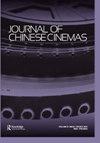Archaeologies of post-socialist temporalities: Documentary experiments and the rhetoric of ruin gazing
IF 0.4
3区 艺术学
0 FILM, RADIO, TELEVISION
引用次数: 0
Abstract
Abstract Focusing on the independent documentary movement that is also a movement of digital filmmaking in China, this essay examines documentary’s mediation of post-socialist conceptions of time through digital filmmaking aesthetics, including ruin gazing, forwarding and reversing, and accelerating and decelerating film speed. In a comparative study of experimental documentaries on post-socialist temporalities in Eastern Europe and China—including the work of Chantal Akerman, Cong Feng, and Huang Weikai—the essay unravels documentary’s representation of time that illustrates the “post” as a locus of desires and anxieties, backward and forward glances that create heterogeneous relationships—with their own economy of stasis, velocity, and speed—in relation to the homogeneous and teleological time of Capital.后社会主义时代的考古学:文献实验和废墟凝视的修辞
摘要本文以独立纪录片运动这一中国数字电影制作运动为中心,通过数字电影制作美学考察纪录片对后社会主义时间观的中介作用,包括对废墟的凝视、前进与后退、电影速度的加速与减速。在对东欧和中国关于后社会主义时代的实验纪录片(包括尚塔尔·阿克曼、丛峰和黄伟凯的作品)的比较研究中,本文揭示了纪录片对时间的表征,将“后”阐释为欲望和焦虑的场所,后向和前向的眼光创造了异质的关系——与他们自己的停滞、速度和速度的经济——与《资本论》的同质和目的论时间有关。
本文章由计算机程序翻译,如有差异,请以英文原文为准。
求助全文
约1分钟内获得全文
求助全文

 求助内容:
求助内容: 应助结果提醒方式:
应助结果提醒方式:


